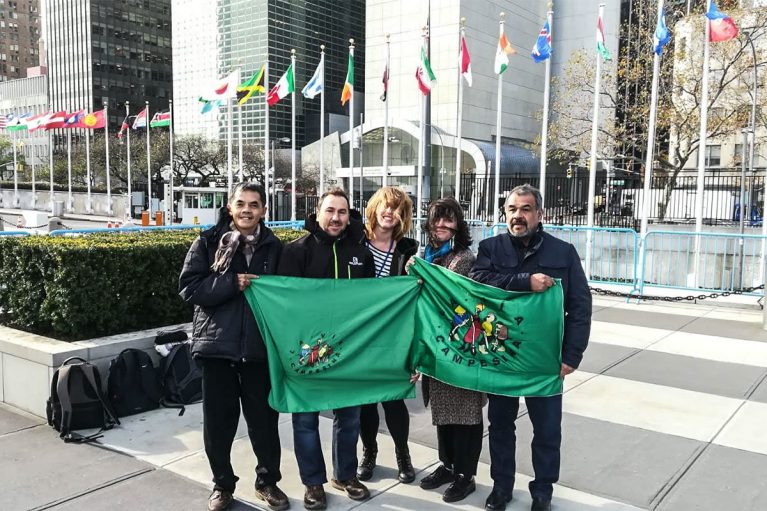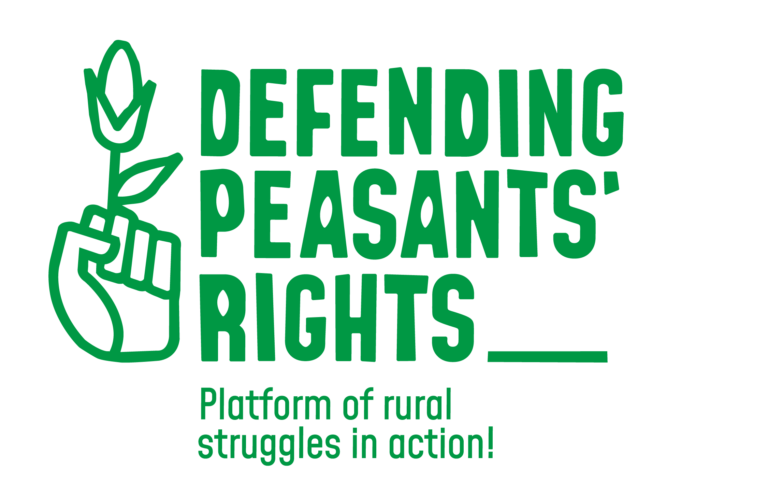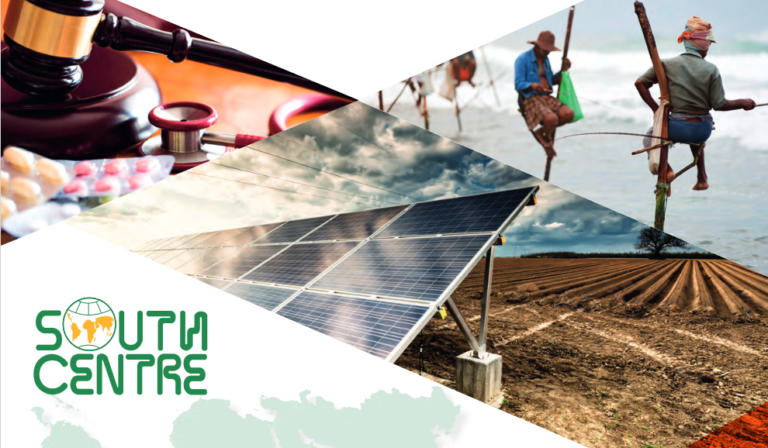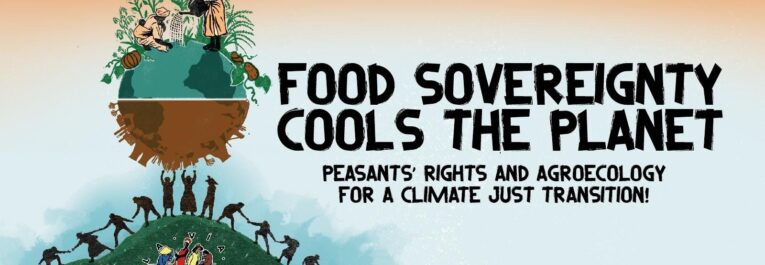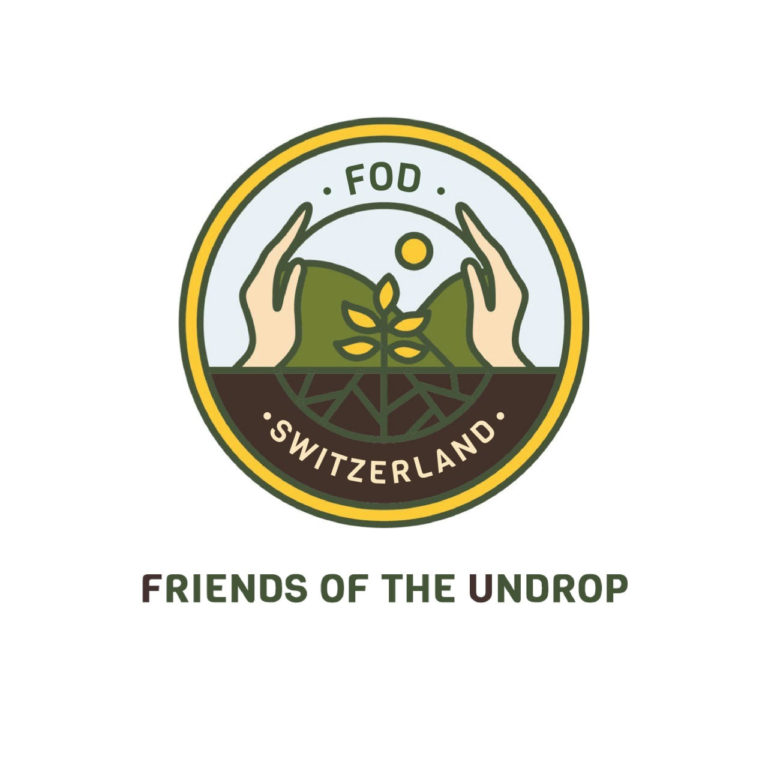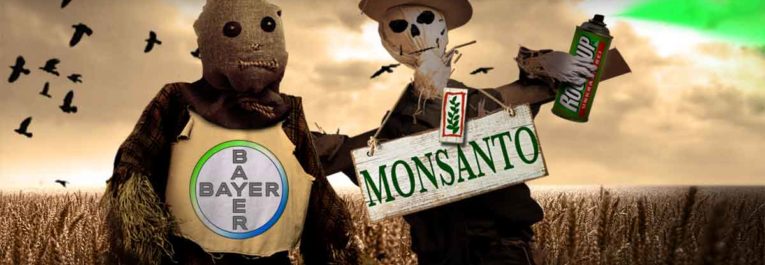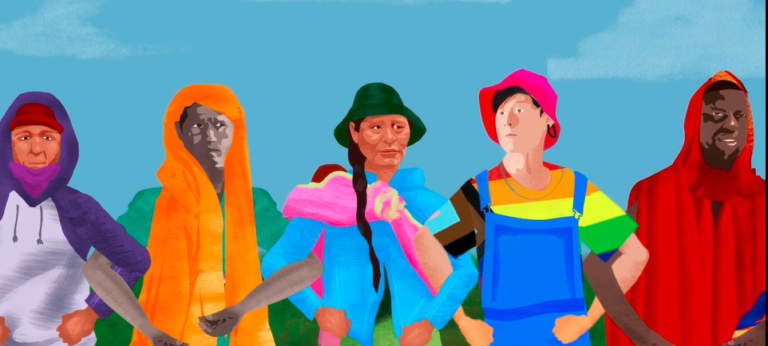Diego Montón: “Agrarian reform is a UN orientation and not only a leftist slogan”.
This article was written by Diego Pintos and published by Tiempo Argentino on November 10, 2023, and is available here.
The leader of the Movimiento Nacional Campesino Indígena-Somos Tierra (MNCI-ST), analyzes the recent creation of a working group under the auspices of the United Nations to guarantee peasant rights.
On October 11, 2023, a global victory for Peasant Rights was consolidated. In December 2018 the adoption by the United Nations General Assembly of the Declaration of peasants and other people living in rural areas signified a 180-degree axis shift. Five years later, the UN Human Rights Council has voted in favor of the creation of a Working Group on UNDROP (United Nations Declaration on the Rights of Peasants and Other People Working in Rural Areas). It is a milestone that recognizes the rights of peasants and their unique relationship with nature. The resolution establishes a UN Working Group to focus on the effective implementation of UNDROP.
The leader of the Movimiento Nacional Campesino Indígena-Somos Tierra (MNCI-ST), Diego Montón, highlights this historic event. “The International Collective of La Via Campesina has been following the process of the Declaration of Peasant Rights at the United Nations for many years. And what has happened is celebrated and supported by the Mesa Agroalimentaria Argentina1. It seems to us that these are concrete advances, and that -of course- they must have their correlation in the territory”.
“If we go back 30 years ago, there was a hegemonic vision that agribusiness, that is, the technological package and the role of subordination to transnational corporations, was what the States should promote and what the United Nations should promote in order to put an end to hunger in the world. Hence the idea of ‘food security’, a very neo-liberal concept, which proposed that the food crisis would be solved through the spill-over of overproduction of food, which -already in the 1990s- was a factor of international alarm”.
Now hunger continues but the alarms are different?
-If we look at this process, starting from the discussion on food sovereignty raised by Via Campesina, a process of revision of this idea is beginning, which – precisely – is based on the idea that, far from ending hunger, what it is going to do is to deepen it. Because, as a result of the development of financial capital in the countryside, local food systems continue to be destroyed, generating uprooting and – in addition – the food that is produced all goes to a financial dynamic, and does not reach the people, blocking the access of the majority of the world’s population.
More land concentration, more poverty, less work and less healthy food.
-There are several interesting balances that are consolidating as conclusions and policies that the United Nations is putting forward. In the first place, the great dilemmas of humanity today -such as the food crisis, the climate crisis and the migration crisis (millions of people having to leave their land in search of opportunities elsewhere) are associated with the development of financial capital in the countryside, which was what the United Nations had promoted at the time. Therefore, what the United Nations is proposing today is that the resolution (or at least part of it) of these crises is associated with the protection and promotion of family and peasant agriculture.
What does this UN declaration specifically change?
-The five law proposals -and the whole general program of the Mesa Agroalimentaria Argentina- fits directly into these guidelines that the United Nations is proposing within the framework of the Declaration, which raises the right to access to land, the right to remain on the land, the right to access individually and collectively, the collective communal use of land, and -in this sense- there are a series of initiatives that are proposed as State policies, in which -for example- in addition to special access to justice, it is proposed that the States should carry out agrarian reforms -in case such a policy is needed- to guarantee the right to land. In other words, agrarian reform is a United Nations guideline and not just a demand or slogan of the left.
The Declaration promotes the protection of indigenous territories.
-Indigenous peoples have specific regulations -such as Convention 169, the Declaration of Indigenous Rights- and in the case of Argentina they also have a place in our National Constitution. This recent Declaration states that all the rights of the Declaration of Peasant Rights can be applied to native peoples, as long as the declaration is not used to reduce or undermine rights already enshrined and/or applied, such as, for example, the right to territory that native peoples have”.
How do you think this UN Declaration will be translated into concrete acts here in Argentina?
-Argentina had been a protagonist in the construction of the Declaration of Peasants’ Rights. That process was interrupted in 2016 with the arrival of Mauricio Macri to the government. In the General Assembly, when the declaration was voted on, Argentina abstained. Now the country reversed that position, accompanied the resolution to create this mechanism of experts to follow the implementation and gave it another turn, another direction, legitimizing the declaration in our country. In Argentina we are clearly seeing the consequences of this situation, since a handful of monopolies control food prices and food logistics, which has been extremely extortive and harmful to our democratic system. It has been aggravated by the fact that the foreign currency that this model was going to contribute to development has not appeared and with the costs of having lost more than 8 million hectares of forests and importing 65% of agrochemicals. That is why this Declaration is also a tool for this discussion, to legitimize the struggles that have been taking place. The legislative proposals presented by the Mesa Agroalimentaria Argentina are strongly contained in the Declaration. It is about discussing food systems in terms of rights and not only in terms of corporate business.
- In English Argentine Agri-Food Round Table. Coalition of farmers’ and producers’ organizations for sustainable agriculture and food. See (in esp) https://uniondetrabajadoresdelatierra.com.ar/mesa-agroalimentaria-argentina/ ↩︎

